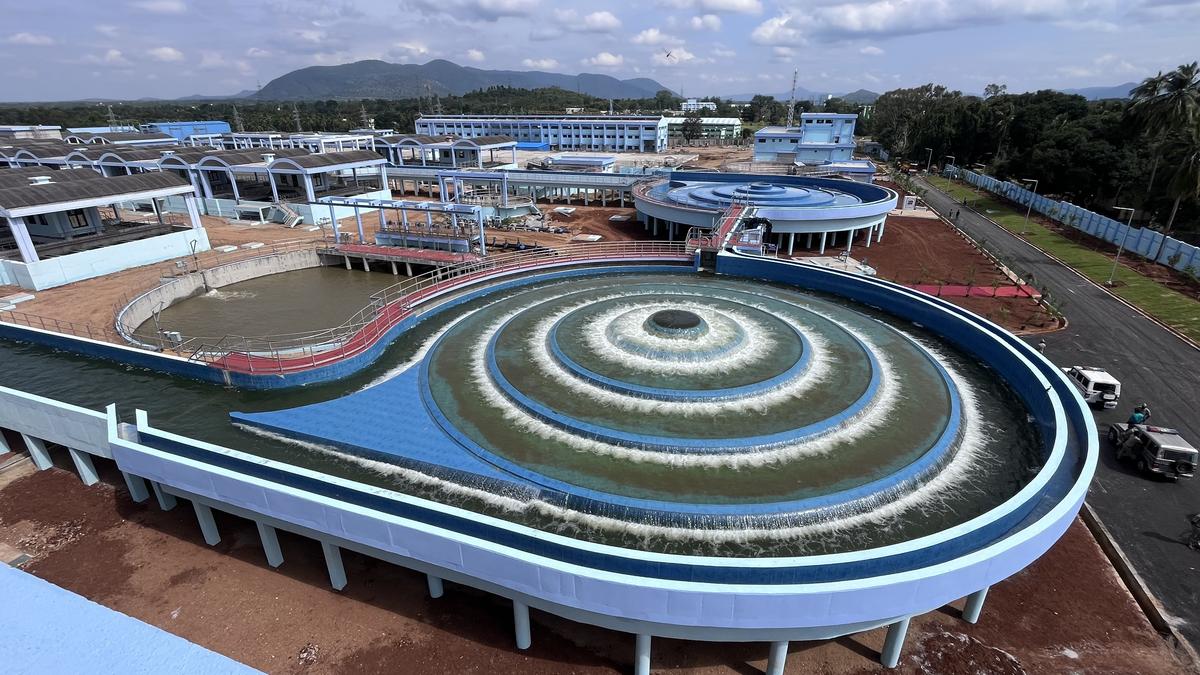
Quenching Bengaluru’s ever-growing thirst, from 100 km away Premium
The Hindu
End of water woes for Bengaluru suburb as Cauvery V Stage brings piped water supply, ending reliance on tankers.
The long wait, during which time he had to count every drop of water and pay a hefty price to source it from tankers and borewells, came to an end last week for Lakshman Narayan, a resident of Gottigere, a suburb to the south of Bengaluru. As the State government commissioned Cauvery V Stage on October 16, Lakshman’s house now gets a piped supply of Cauvery water on alternate days.
“We availed ourselves of the water connection three years ago from the Bangalore Water Supply and Sewerage Board (BWSSB) and waited for the water since then. It has been a long wait. During summers, we would spend over ₹5,000 every month on tankers and it was such an ordeal to even source them. Now, the days of tankers has ended for our neighbourhood,” says Lakshman.
The 110 villages around Bengaluru city that fast urbanised and were brought under the city corporation’s limits in 2007 had to wait for almost two decades to get piped water supply.
The BWSSB has been supplying piped water to 10.64 lakh connections in the city by implementing four stages of the Cauvery Water Supply Scheme, drawing 1,450 million litres per day (MLD) (around 19 tmcft annually) till date and earning a monthly revenue of around ₹100 crore in water tariffs. Now, with the Cauvery V Stage being commissioned, the BWSSB aims to serve at least 4 lakh more connections, drawing 775 MLD (around 10 tmcft annually) in these 110 villages, and is expected to increase its monthly revenue to ₹140 crore.
The project involves bringing water from the Cauvery, around 110 km away from the city. Work on the project, which cost around ₹4,600 crore, started in 2018. The board expects to recoup this investment over the next 30 years to repay the loan from the Japan International Cooperative Agency, which funded the project. The project faced several hurdles, including land acquisition and labour issues during the pandemic in 2020 and 2021. The project was finally commissioned earlier this month.
As part of the new project,three advanced booster pumping stations have been constructed at Thorekadanahalli (T.K. Halli) in Malavalli taluk of Mandya district, Harohalli to the South of Bengaluru in Ramanagara district, and Tataguni on the city’s outskirts. These stations will pump water to an elevation of 450 metres — about the height of a 50-storey building — through steel pipes ranging from 500 mm to 2,200 mm in diameter, covering a distance of 110 km to Bengaluru.
The board has been giving individual connections under the Cauvery V Stage since 2019 and only 55,000-odd households have availed themselves of the connections till now. Presently, the board is drawing only 150 MLD of water from the Cauvery to serve these connections and will draw more water as and when more connections are availed of by residents, say sources.

In a breathtaking display of musical prowess, the Singspirations, a Tiruchi-based choir group, in collaboration with the Glauben Ensemble and the Genesis Chamber Orchestra, presented a sublime performance of Wolfgang Amadeus Mozart’s Requiem in D minor, K. 626, in its entirety, mesmerising audiences.












